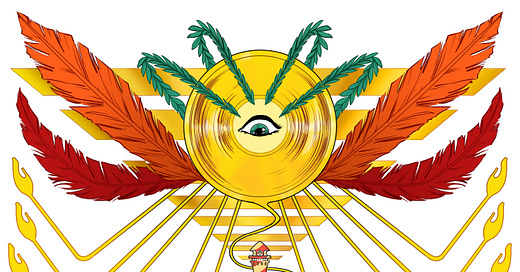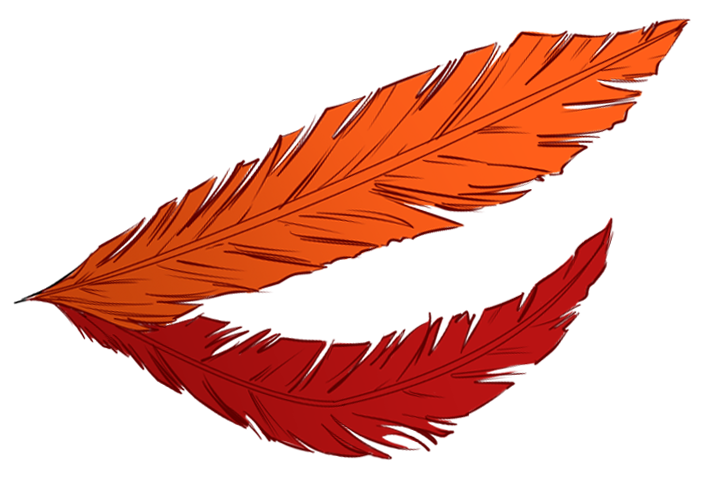deep assignments,1 in whither or now we art
It has never been about the book as commodity or artifact
Without warning, on March 28th, an announcement on social media blasted to its core a last nexus of independent writing in the U.S. and beyond: “Small Press Distribution (SPD) is closing its doors effective immediately.” This shutdown threw into peril hundreds of small presses and thousands of books. A sudden, calamitous blow to an entire ecosystem of creative writing. R.I.P. SPD 1969-2024.
The way the closure was managed did nothing to protect SPD’s legacy, not to mention the present operational and financial concerns of multitudes of publishers impacted. By the time of its announcement, the organization had spent two months packing up more than 300,000 books from its warehouse in Berkeley and shipping them to Ingram and Publishers Storage and Shipping (PSSC), where it has been up to each small press to contact either or both companies and sort out what has happened to its inventory. How many titles thus went out of print overnight? Since SPD kept taking orders - and payments - up to the last minute, many publishers remain unpaid even as their orders went unfullfilled, and (as SPD never was good at keeping up with remittances in a timely manner) some are owed thousands and tens of thousands of dollars, unlikely ever to be paid - devastating to so many operating on a shoestring, often supported by donations and/or labor-of-love proprietors. Many are in jeopardy, some have already folded. Out of irresponsibility, betrayal. Meanwhile, a number of these presses are too small or cash-strapped to meet Ingram’s or PSSC’s terms for continued distribution and are left scrambling for alternatives - or even for the return of their books - amidst such chaos.
The shock to the system in great part has to do with the fate of individual books - each publisher’s inventory, and each author’s individual titles, once stocked on SPD shelves awaiting orders like good little soldiers, now languishing in some box somewhere. Too many writers are left with the sense that their works, life works - seemingly secure through book publication, through that validation being published, being in print brings - have been thrown back into obscurity by this collapse.
Yet, this sense - both of apparent security through publication and its threatened loss - comes of the incidental objectivity of the book.
The book as object is destined for negligibility. The book as work lasts in exact accordance with its irreplaceable thrust. Whether degraded into commodity or conscientiously uplifted into artifact, objet d’art, the book object materializes its future crumbling. Still, whatever forces and potentials are transmitted by its text get released nevertheless; whatever its substance outlasts its matter. Not to say I don’t adore the feel of a favorite book in my hand, that meditative fingertip turning of a page. I appreciate chapbooks and broadsides, ephemera (the type of ephemera meant to be preserved), and of course brilliantly-designed paperbacks and hardcovers, plus coffee table books and book art innovations.2 Above all for authors, it’s difficult to anticipate or recall a greater satisfaction than the feel of one’s own (especially first) book in one’s hand. Tangibility, yes! & sturdiness for decades, perhaps centuries, in the stacks. Yet, this is all conveyance for each work’s thrust-worthy substance.
Everything you’ve worked for your whole life has been brought to naught through loss of the sought-after object? - but the lament itself is based on false promises, faulty premises!
Paradoxically, the object is never the thing.
However personal the loss, however intimate to the work that experience of futility when economics lays waste to its objects of commerce, lands you in the landfill, books trashed one at a time or en masse; it remains true that such disaster only involves objects - what’s their substance for real?
The ultimate mission of publishing is not to create and merely print books, nor even to sell them, but to inaugurate works into a given culture, to begin the process of allowing them their impact on society, on the collective mind. To imprint the work into public consciousness (thereby making it available to the private, fated soul for a work): this does indeed mean, in most effective practice, distribution and marketing and sales and publicity. Competency with and overcoming of, by turns, all measures and accounting necessary for keeping things going. Yet, the impetus is distinct from profits and bestsellerdom as a goal, and propels itself from an intrepid belief in culture.
It’s a responsibility. Publishing means operating as a force in society, on behalf of the work, so that the work’s intrinsicality - integrity of its own forces, qualities, generative power - can have its potentially transformative way in the world. So, the writer or publisher or writer interested in getting or being published, or in self-publishing, misunderstands the job unless or until responsibility is taken for creating a space for the works to create a space for themselves. They do so intrinsically; it is the nature of art to open up its own world, but it is the proper function of publishing to open an extrinsic worldly space to frame a creative work’s intrinsic space-making.
Creation itself is incommensurable. Implicit to and for those I’ve been addressing with this Substack - to those whom this Substack is for - creators, would-be creators, and people of any profession taking a creative approach to their work and lives: it’s part of the path to recognize that creativity is quintessentially free and responsible amidst any or all oppressive, soul-crushing systems and circumstances. In addition, we do well to recognize that the nature of publishing and being published, “getting the work out” in practice, is also brimming with agency, and is at its most powerful in effecting the freedom and responsibility of a new or renewed opening - { } - of creative space. An intrinsically anti-authoritarian, anti-totalitarian, market-transcendent, anti-mechanistic/algorithm-transcendent liberation.
Poetry, Thought, Word Magick’s tagline is “Old-New Mastery of the Creative Path.” Along with the three terms of the title, there are the three terms of the tagline. Upon these terms, a three-point distinctly human practice.
Creativity, "Old-New," and Mastery I. Creative thinking is crucial for us to forge into the perilous, uncertain future. II. “Old-New” – for our best creative thinking, we need the best of humanity's genius from history and traditions combined with advanced theory, technology, and science, all in the spirit of innovative, iconoclastic freedom of thought. Even as my writings heretofore have found camaraderie in the avant-garde, I've maintained an affinity with the classics (Heraclitus, in particular), along with a faith in some intrinsicality of the canon (of course acknowledging ideology and politics in canon-making) - there is a core worthiness in works that last. Musings, then, from an avant-garde traditionalist. An avant-garde techno-traditionalist! & canonist of the free spirit. III. As well, we need Mastery; we need once again in our time to dare and embrace mastery, the Fool's journey of initiation, practice, and fulfillment in pursuit of a Success that inevitably takes experience right back to infantile beginnings, innocence (the only wisdom after guilty worldly attainment). Anti-authoritarian (and anti-author) artists and writers these days have trouble holding the concept of mastery in good service. This is wrong-headed and self-defeating, because it neglects ultimate purpose and fails to recognize the basic humility necessary, in practice, for such proud endeavoring. Perennial masters exist, and these are (or were) devotional lives, dedicated to the timeless exigencies. It takes mastery and the will to mastery to walk creativity's twisted, cyclic path through to its tail-devouring return.
Upspiraling
Works are the traces of practice, the records of each fresh opening out of tired pattern, necessary and cherished (oh memory, oh consecration, carry the past into the future, and the present past the threshold of passing-into-oblivion), for if they are vital, they remain source and resource for all, ongoing; yet, first and last, the only matter is Creativity’s surge and urgency. The eternal uprising of new life, generative force. No matter what. Verticality embraced, gravity defied; opposite of downward spiral, a rhythmic whirl upward and around the axis of Higher and Lower, the healthy human spirit irrepressibly seeks access to its highest hopes: upspiraling.
Plight and purpose, each one’s own inimitable impulse for LifeTime of work and works, haunt one with a foreboding that the task is thankless at last. Yet, expend your strength, give what you can bodily give for the corpus, your body of work, the bodying of spirit - surging purpose - for a release into matter (yes and no), into what matters, resurgent: high hopes and defiance are one, in staunch reality and practice, mastery, amidst and in regard, disregard, not only to major-minor catastrophe ala SPD and every economics-based onslaught of waste, but to technological upheaval, fears now of ai stealing intellectual labor3 whether or not it is on the path to making human brains obsolete, and to politics, disarray, illiberal forces, from censorship and bookbans and propaganda, to systemic oppression and curse of circumstances becoming history along with the tragedy of individual stories becoming statistics - nevermind global existential dangers closing in on any and all of our tiny, presumptuous creative openings. Hope against hope,4 to devote oneself to this defiance of circumstances and outcomes, nothing is more honorable. Not only for the honor, but for the glory - to be actually executing in the real (pay no mind to the spectacle, which includes all wealth and fame); it’s thought that turns the world.
One might ask, what does a body of work bode? For what, its signaling…
The future is calling. Indeed, if you can listen to the past hard enough, or well enough, you’ll hear the future calling. & If you can be in the present, if you can be with presence, abide with its threshold momentum, you’re rippling matter in infinite progression. I sometimes wonder if the opposition in our current time, that of civilized despair (fear and dread of threats to society and earth) versus barbaric frenzy for our own supersession (political and/or technological), covers up on each side a lack of heart, of courage, to confront that call of the future: because the future demands something extraordinary of us, of the present - more than mere caretaking for survival, but devotional and daring love of life braving its ascent.
MMm… Utterance from silence into stirring, birth of a poet, at my beginnings with poetry I sought or listened only for pure utterance, ear of the mind - are there any whispers at the source? - awareness at its origin, poetry as utterance closest to thought as it arises.
Forthcoming and Current Work
My poetic hybrid book, The Killing Joke, forthcoming from The Mute Canary, triangulates its skeleton Jester imagery upon the pop cultural nodes of Killing Joke the band, the Joker-focused Batman graphic novel by Alan Moore, and the first episode of Monty Python’s Flying Circus with its lethal joke sketch – “no one can hear it and live.” The fact that the cackling Evil Clown archetype remains topical years after I began work on this project (we’re still dealing with Trump) demonstrates that the interminable laugh's on us.
In the meantime, I’ve begun my return to poets theater with Bloodwrought: Task of the Poet, an Orpheus story, in development through the months ahead (recent posts re first iterations make two of the top five Substack entries listed next).
This Substack
Representative entries:
Plus, you can find the first twelve Allegory of the Llama comics all on one page here: Allegory of the Llama comic strip #s 1-12. Created in collaboration with my daughter, musical artist Hero Magnus, this feature comes out every other Tuesday.
Currently, the Poetry, Thought, Word Magick FaceBook page launched in fall 2023 has 11,000+ followers and growing.
Works
Assorted and Reassorted Spores. a partial list (what I’m partial to mentioning at the moment), published and unpublished, produced and unproduced, along with leavings, juvenilia, unfinished business.
Given distribution issues after the fall of SPD, If you have trouble finding any of the following, find me.
The Re-echoes (Furniture Press books); if you read this book-length poem (doable in one sitting), you don’t need to read Finnegans Wake.
Idylls for a Bare Stage (twentythreebooks); the ancient/modern technique of a shared imagining, theater as irruption of symbol and language into mind.
Heraclitean Pride (Furniture Press Books); Heraclitus’ one book recreationally recreated out of the stream of time, and neither book nor stream ever the same.
The Free Spirit (SiGiLPAL) on Kindle, for free spirit canon-creating through the ages; less about rainbows and orgies (without precluding either), more situationist and of the Heresy of the Free Spirit, ala self-liberation - spiritual, intellectual, and libidinal - in daily life.
Verb Sap (Narrow House); poetry drunk on language, nuff said.
Little Puddles see footnote #1
Comprehensive listings for all creative projects at www.magusmagnus.com and a record of real-time tracking of the art of the Idyll (technique of poetic monologue) at A Shared Imagining. Theater and Performance highlights include Idylls performances at Washington D.C.’s The Shakespeare Company’s Sidney Harman Hall, a “Must-See,” 5-Star, “Best of the Fringe”-rated run of Murder on the Bare Stage at the Capital Fringe Festival, performance installation of “eckClogs” at D.C.’s Canal Park, and a rollicking H,A! at the Kennedy Center Page to Stage Festival.
Meanwhile, in manuscript…
“Here too dwell the gods.” - Heraclitus to visitors he received in his kitchen.
Harlequin, Again! (H,A!) Commedia dell’arte rags to riches to rags again, slapstick poetics.
Francesca and Paolo in Hell is it a fiasco if the show doesn’t go on in the first place, despite sold out opening weekend in New Orleans, and cover story in the Gambit Weekly? I took awhile to get over it.
Heliogabalus: Priest of the Sun, Emperor of Rome drowning in flowers, I’m going on more than ten years of recurrent immersion in the story of the most unleashed autocrat of all time.
A Sexual Congress politics is more of a mindfuck these days than when I thought a farcical novel of Washington D.C. was just what was needed.
The Abyss of Passion a novel of Luis Buñuel’s version of Wuthering Heights as you’ve never seen it before. Oh wait, if you’ve never seen it before then you’ll see it for the first time, phenomenologically. & hear it with Kate Bush’s piano, “let me in your window.”
Imposter!: instances, regrets poetic autobiography
auroral scorpion, sting my eyelids awaken me to visions unforeseen
The continuities! I still resonate with my poetic beginnings, as you can notice here - from Little Puddles (1993, Manya DeLeon Booksmith)
North and misappropriated fog "a catalogue of disappointments," missed appointments, in weather or not we are
Any publishers ready to scale for poetry coffee table books and book art, respectively, like University of California once did for Charles Olson’s The Maximus Poems and New Directions, more recently, for Anne Carson’s Nox?
Matteo Pasquinelli’s The Eye of the Master (2023, Verso) sheds light on the hidden human labor secreted throughout the evolution of artificial intelligence, a major reconceptualization.
This plain phrase becomes a profound, terrific title for Nadezhda Mandelstam’s memoir of life under Stalin with her husband Osip Mandelstam (she a great writer, he a great poet), its valences multiplied because her first name means “hope” in Russian.















